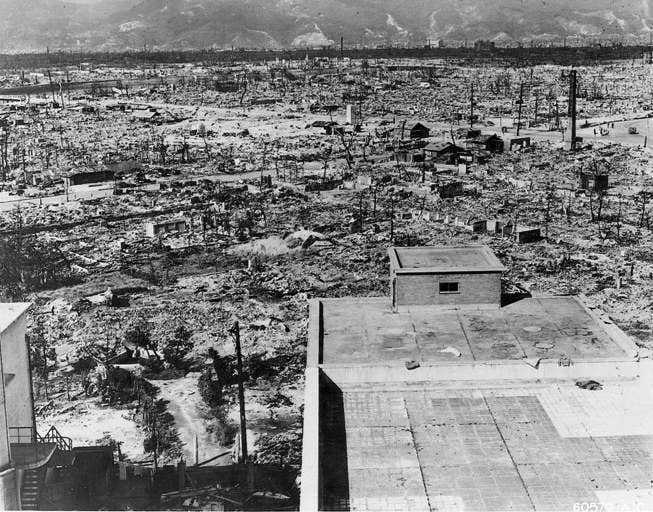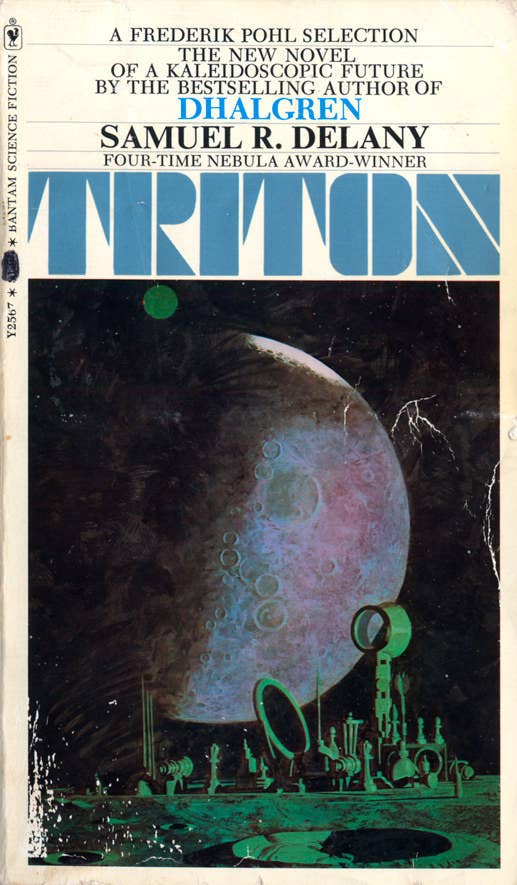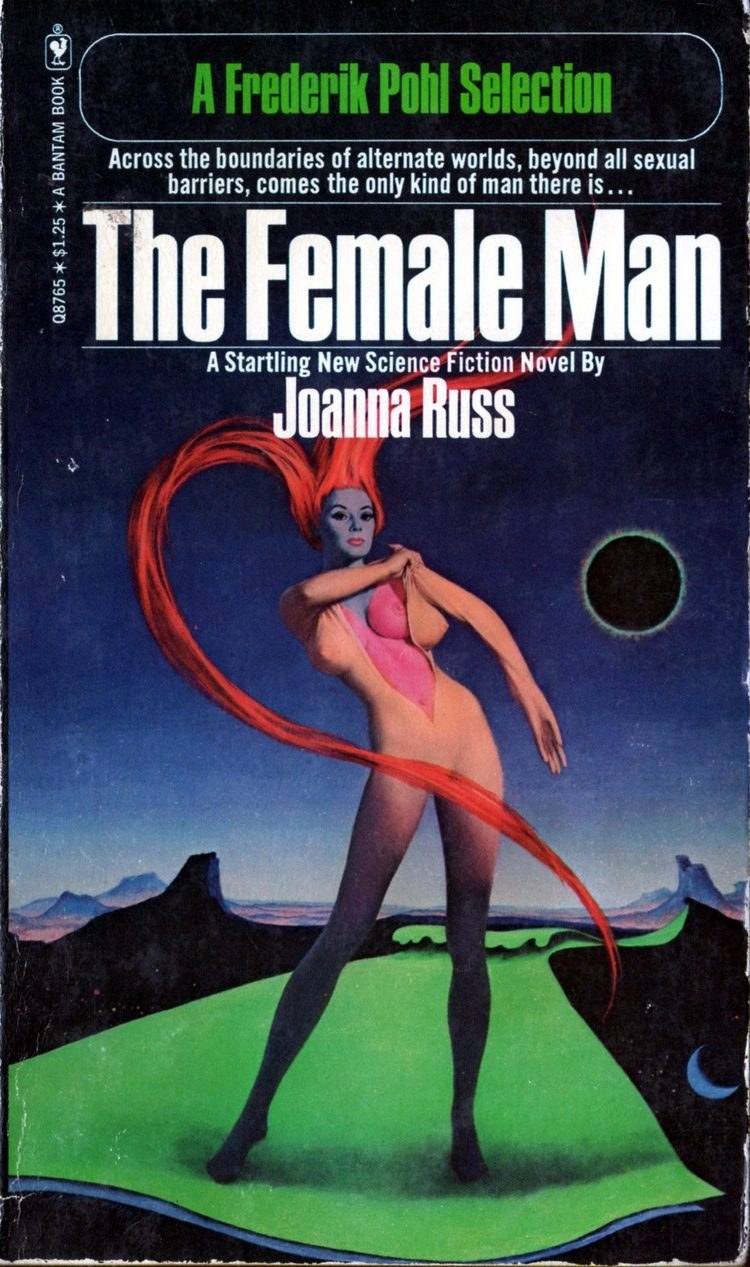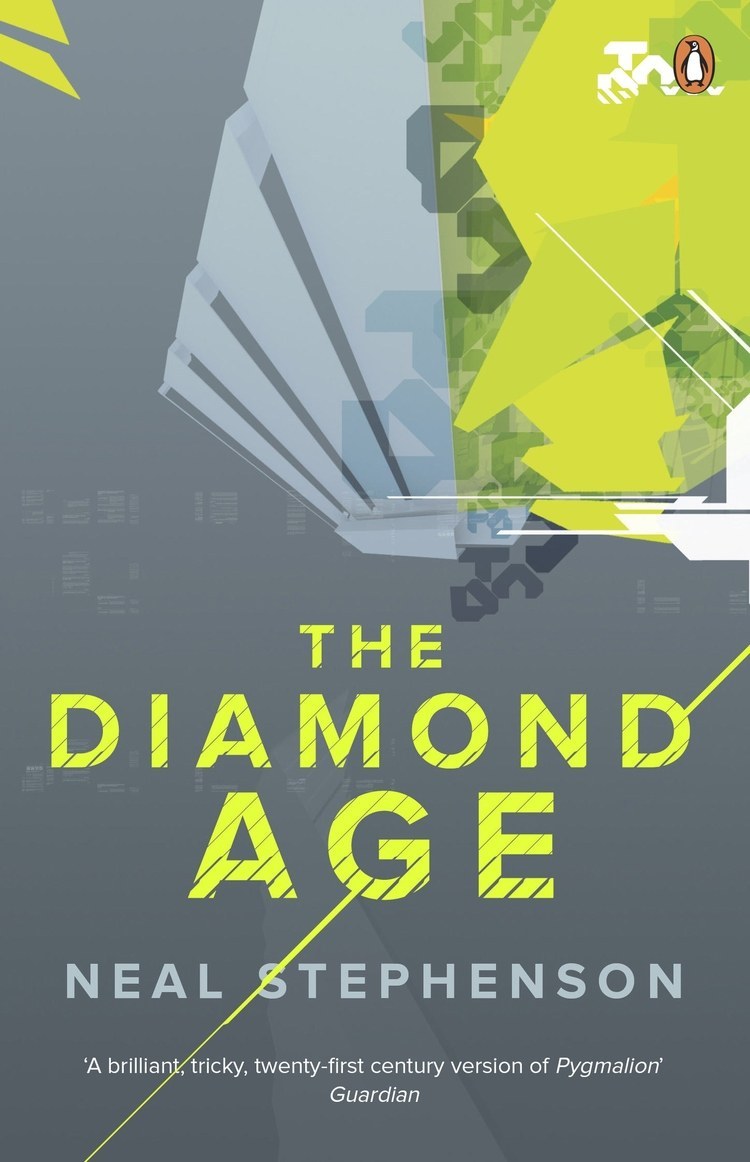
Dystopias are all the rage these days, which is not particularly surprising as it’s a time with no shortage of existential fear — climate change, nuclear war, zombies. There are no shortage of cultural dystopias either, from classics like 1984 to more recent additions like The Hunger Games.
But there’s also another type of dystopia worth highlighting: the false utopias, the seemingly wonderful worlds that are actually awful — at least from a certain point of view. Authors working with these false utopias are sometimes playing a subversive game; other times, they are simply unaware of the implications of their creation; and sometimes the real world changes to a point where the writer’s perfect universe looks like a nightmare. Here are a few horrifying examples:

1. Trouble on Triton by Samuel Delany (1976)
The Utopia: In the “ambiguous heterotopia” (as Delany dubs it) of Triton, humans have unprecedented freedom. They can adhere to any culture or style, work or not work, never go hungry, change their genders or bodies if they please, and associate how they wish. While people are still humans and frequently behave like dicks, systemic racial and gender discrimination seem largely gone. Want and a lack of leisure time appear to have been wiped out as well. The little bit of the government apparatus that’s shown seems incredibly democratic and accessible.
Delany’s story focuses on Bron Helstrom, practitioner of an obscure mathematical art and vaguely dissatisfied white guy. War with other parts of the solar system may be looming and Bron may feel oddly alienated, but Triton still seems like a pretty great place, especially compared to our current world.
The Dystopia: Bron, it becomes pretty quickly clear, is an asshole. And Triton, at first seemingly a peaceful utopia, is also willing to wage war by any means necessary.
Triton is a vastly under-appreciated book. It’s one of the smartest subversions of utopia, especially of the anarchist variety, that’s ever been written, giving us a society immensely more free and fair than the one we have now, while reminding us that it’s still going to produce alienated individuals — especially those who long for a time when privilege ensured them power and a good lay.
If that wasn’t enough, the world of Triton still has a power structure, and when its very society is threatened, it will play for keeps because that’s what any power structure worth its salt does. By the novel’s end, it becomes clear that, for the narrator and plenty of other people in the far future, Triton is a dystopia. The kicker? The book also makes a uncomfortably good argument that the negatives — Bron’s alienation, the ruthlessness of Triton’s government, etc. — are all absolutely justified.

2. The Female Man by Joanna Russ (1975)
The Utopia: Janet, an S&P officer (a cop), hails from Whileaway, an all-female world without want or alienation that mostly allows people to realize their full potential and ensures everyone is taken care of. Whileaway also has high technology and ends up discovering how to travel to alternate universes. Through this, Janet encounters three alternate versions of herself: Jeannine, a mousy librarian from a world where the Depression never ended; Jael, a brutal cybernetic assassin from a dystopia where the genders are at war; and Joanna, from our world. Given the worlds on offer, many readers have interpreted Whileaway as Russ’s argument that the world would be better without men.
The Dystopia: Many readers have been idiots. This is a must-read book, but I’ve yet to encounter anyone it didn’t make viscerally uncomfortable. Russ was too smart and too wonderfully ruthless a writer to give her readers an easy out. While the gender civil war of Jael’s reality is clearly a dystopia and presented as such, this novel is an all-out assault on the “mutual prison” of gender, and it refuses easy answers — including in the false utopia of Whileaway.
Like every society, Whileaway has its expendable members: Janet is sent into alternate realities because hey society can afford to lose her, and she knows this. Russ isn’t shy about Whileaway’s brutal pragmatism either; in a particularly chilling scene, Janet flashes back to hunting down and executing a dissident who simply won’t fit into her society’s norms. The novel’s final gut-punch also reveals that like every seemingly perfect world, Whileaway has its own histories of atrocity, including secrets that its current enforcers would prefer everyone forget.

3. The Diamond Age by Neal Stephenson (1995)
The Utopia: The tumult of the cyberpunk years has ended, and a brave new world awaits. Grouped into cultural “phyles” like NeoVictorians, innovative humans draw from the cultures of the past to shape a nanotech-driven future in a post-scarcity era. While there’s plenty of upheaval and misery inThe Diamond Age — possibly a bit too much to be considered a traditional utopia — it seems to be heading towards a better tomorrow.
The Dystopia: Yes, everyone is well fed, and replicators spin items out of nowhere, but most of The Diamond Age’s society is composed of “thetes,” with no rights and usually without the money necessary to access its privatized legal structures. They’re sick from bad nanotech, living in moldering slums, facing real violence and often waiting to be tortured or executed by debt collectors.
This hasn’t gone unnoticed, and there’s a heap of criticisms of this novel’s attitudes towards women, Chinese culture and issues where Stephenson’s approach is problematic. But beyond that, the world he creates is, when read with a drop of realism, miserable and unstable for most of its inhabitants.
Stephenson’s smart enough to play with upheaval, but his own Silicon Valley sympathies miss the obvious connotations of the world he creates: Reading between the lines, The Diamond Age presents a disturbingly plausible dystopia emerging from the ascendancy of corporations and technologists. This creaking oligarchy enforces subsistence misery and powerlessness for billions, producing a society probably heading towards collapse.

